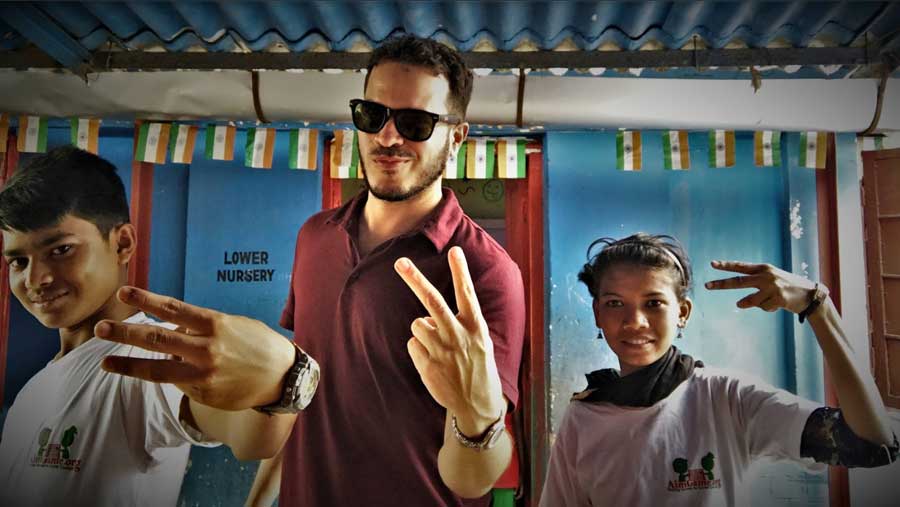Competitive games, music lessons, a trip to a theme park... sounds a little like a fun summer vacation, doesn't it? These are some of the things Responsible Charity is using to transform education for underprivileged children. The founder of this Kolkata-based NGO, Hemley Gonzalez, a Cuban-American real estate broker, first visited India in 2008, after the financial market crashed. He decided to volunteer with a well-known charity, but when he visited some of the families they were supposed to be helping, he discovered that the reality was very different from what he expected.
This negative experience turned into a driving force when Gonzalez returned to India in 2010. He was trying to put the children from these families into school, and when many of them started dropping out, he began observing their families and communities. He realised there were several interconnected issues hindering the education of the children. His attempt to connect the dots became an organic process which eventually led to the birth of Responsible Charity.
Preventing dropouts
Gonzalez wanted to create a system that deterred parents from interrupting their children’s education. Responsible Charity works with slum communities in Park Circus, New Alipore and Santragachi, providing fully paid scholarships to dozens of children, along with a handful of additional benefits to the parents and extended family, ranging from birth control and medical solutions to financial assistance and employment opportunities. This holistic approach ensures that the child’s education is focused and uninterrupted, eventually offering a path to a life without poverty. When the NGO invests in a scholarship for a child, it is a 15-year commitment until they graduate from college.
Innovative curriculum
They have an innovative year-long programme called AimGame, where children participate in different games that impart lively lessons in discipline, organisation, collaboration, healthy competition and social interaction. The programme mimics the atmosphere of a private school, where all-round growth is given as much attention as academia. At the end of the year, top performers are awarded the 15-year scholarship and offered other benefits like tuitions, English classes and their music programme, SlumJam.
“Essentially, what we’re trying to do is, bring the resources and advantages of an upper-middle-class child to children from slum communities, during the crucial years, until they graduate from college,” says Gonzalez. College graduation for a child from a slum will more or less guarantee that they exit this level of poverty. And this one generation will pull all subsequent generations out of poverty.
More for a few
The Responsible Charity model radically shifts the conversation on poverty. They choose to help 40 children graduate from college, instead of simply feeding 500. Those 40 will lead to many generations of educated, well employed individuals, with better living conditions. In the future Gonzalez wants this model to be perfected and made scalable so that other organisations can adopt it and more children can benefit.
They grant a stipend to parents to deter them from interrupting a child’s education. The parents too have to attend workshops and report regularly, in order to keep receiving said stipend. The staff working with the charity regularly visit the children in their homes and report on their progress as well as the home situation. Annual field trips to theme parks and other fun places in the city are made to keep the kids interested. Responsible Charity now has branches in Pune and Mumbai as well.
Going digital
During the pandemic, private English-medium schools moved their classes online. Responsible Charity also launched a campaign to equip children with smartphones and internet service, thereby getting them back into class.
“We learned many lessons during the lockdown period, but the most important one was that we need to adapt to any challenge that is thrown our way and work as a community to solve the problems. It’s going to be a long time before we return to what we considered ‘normal’ before the pandemic, perhaps not even returning fully to that version of our world; but now we are stronger, more united and more compassionate towards each other, proving that even a pandemic can bring out the best in each of us,” says Gonzalez.
